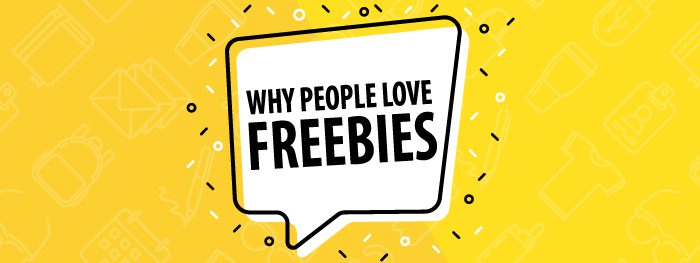
Blog
The Psychology of Freebies: Why Small Rewards Yield Big Returns
At the core of the effectiveness of freebies lies the principle of reciprocity—a powerful social norm. When individuals receive something for free, they often feel an intrinsic obligation to give something back, even if that “something” is as simple as goodwill, positive feedback, or a purchase.
In marketing, this principle translates into tangible results. Offering a free sample, for instance, not only creates a sense of value but also increases the likelihood of a customer returning the favour by buying the full-sized product. In my experience, the goodwill generated by even the smallest gesture can pave the way for long-term customer loyalty and advocacy.
The Zero-Price Effect
The zero-price effect highlights how disproportionately attractive “free” items are, even when their objective value may be lower than alternatives. Research consistently shows that consumers favour free offerings, often viewing them as a better deal, even if a paid alternative offers greater overall value.
This psychological bias can be a game-changer for brands. For instance, including a free bonus item in a purchase—like a complementary case for a product—can dramatically increase perceived value and drive conversions. At CI Group, we’ve found that integrating these insights into promotional campaigns can lead to significantly higher engagement and satisfaction.
Building Brand Recognition and Loyalty
Freebies also play a critical role in building brand recognition. When a consumer receives a free product, it fosters a memorable connection with the brand. This sense of familiarity often translates into preference, especially when making future purchasing decisions.
Moreover, freebies are a catalyst for loyalty. Providing value upfront—without strings attached—creates positive associations, positioning a brand as generous and customer-focused. Over time, this fosters repeat business and strengthens the relationship between brand and consumer.
Enhancing Perceived Value
Offering something for free doesn’t just generate goodwill; it can also enhance the perceived value of the product or service. Consumers often interpret a free offering as an added bonus, making the overall proposition more appealing.
For example, a free consultation from a service provider or an extra gift with purchase can set a brand apart in a crowded marketplace. This perceived added value often influences purchasing decisions and reinforces the brand’s position as a provider of superior experiences.
Strategic Implementation of Freebies
While the benefits of freebies are well-documented, their success depends on thoughtful execution:
- Alignment with Brand Values
The free offering should resonate with the brand’s identity and appeal to the target audience. - ROI Considerations
It’s essential to balance the cost of providing freebies against the potential returns in customer engagement, loyalty, and sales. - Relevance
Freebies should provide real value to the consumer, avoiding the perception of being “cheap” or irrelevant.
At CI Group, we’ve helped clients implement freebie strategies that drive meaningful results, blending creativity with clear objectives to ensure both impact and ROI. The psychology of freebies reveals why small rewards can yield disproportionately large returns.
By tapping into principles such as reciprocity and the zero-price effect, brands can capture attention, foster loyalty, and enhance perceived value. The key lies in execution—thoughtful, strategic offerings that align with your brand and genuinely resonate with your audience.
Let’s Talk.
